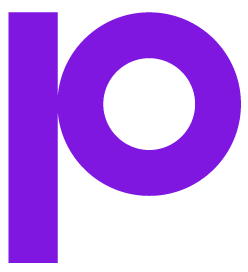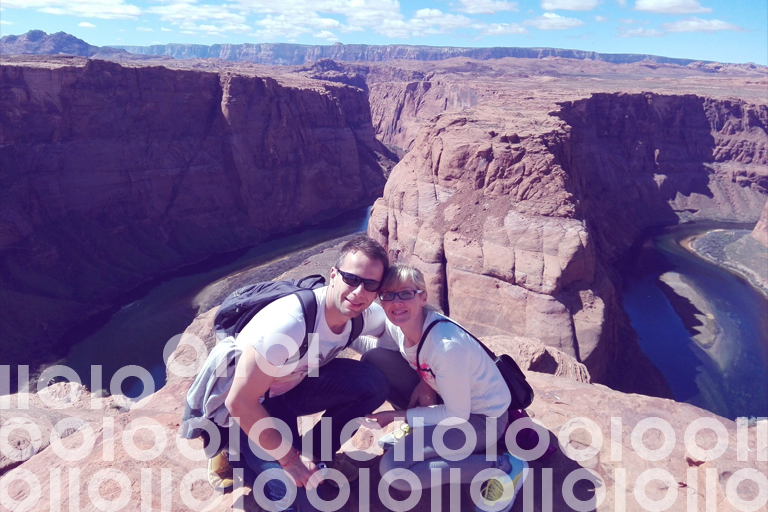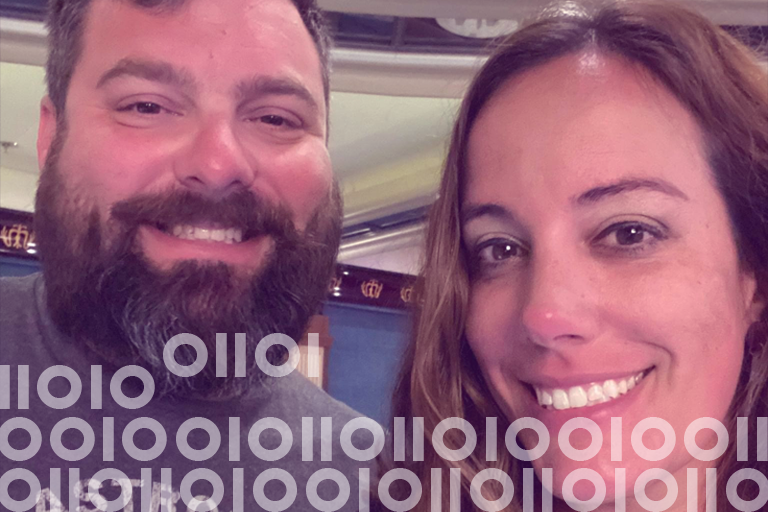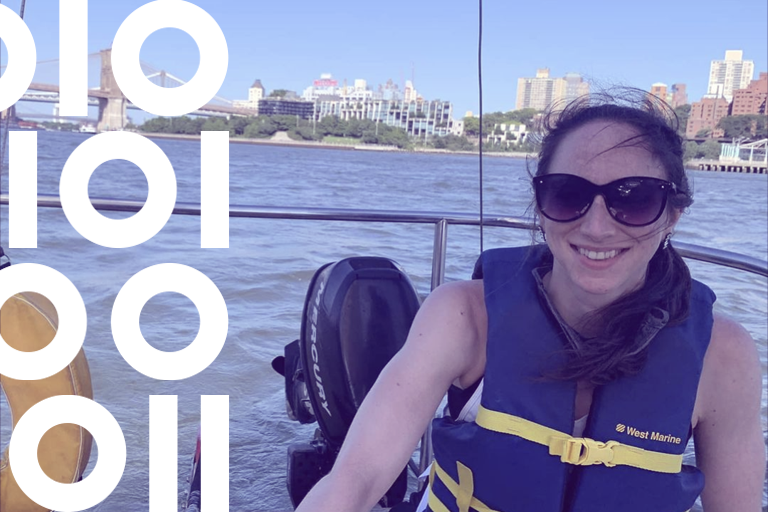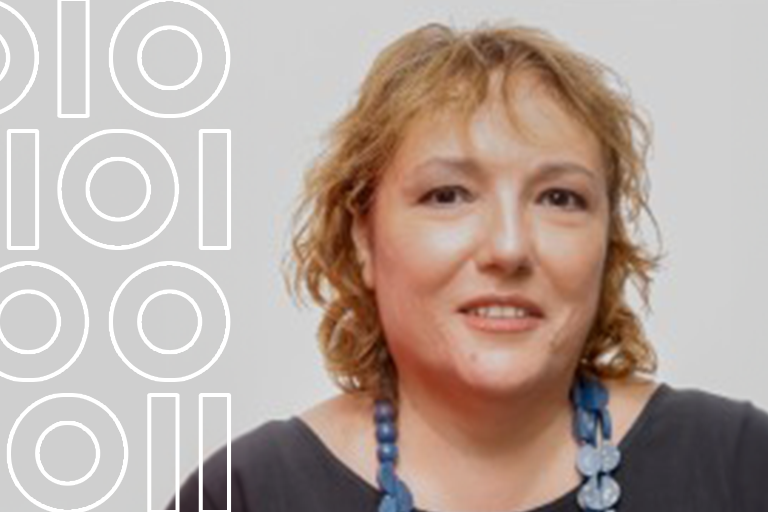
Precisely Women in Technology: Meet Monica Di Martino

With an increasing number of women joining IT, it’s becoming a more inclusive environment. Precisely is committed to building a more inclusive work environment, which is why there are ample opportunities for women in the organization. One of the company’s initiatives is the Precisely Women in Technology (PWIT) program, that was established to be a place for women to come together, support each other, offer guidance, and more. Since its inception, the program has grown, and to highlight the work it’s done, a member of the program is featured each month. Continue reading to learn more about Monica Di Martino, Senior Sales Engineer, and her experience working as a woman in tech for the last 30 years.
Why did you choose to pursue a career in technology?
I started working in technology in 1993 – exactly 30 years ago! Can you believe it? It’s a lifetime of stories, decisions and changes, optimism, determination, and challenging and rewarding moments. All in all, I’m glad to work with charismatic and brilliant people around the world.
Technology has been an interest of mine since I was a young adult when I used my uncle’s Macintosh in the 80s. At that time, it wasn’t easy to pursue a career in Technology as a woman in Italy. I studied Mathematics because there weren’t many women Tech engineers in the Italian Universities. My choice went against my family of teachers, philosophers, and painters, who said: “That’s fine Monica, you can study science like Math and Physics, but after your degree, you’ll read books to get your humanistic culture!”
I started working in the Math department at Rome University because I was told, “Women are perfect teachers!” Despite this advice, I didn’t care about pursuing a career in teaching. Instead, I followed my interests of problem-solving and creating algorithms by developing code for the MLP-Neural Networks patterns recognition.
Then, at university in 1994, I discovered GIS and Location Intelligence (LI), and it was love at first sight! LI isn’t only the use of features and tools, but it’s also a wonderful world made of spatial data, spatial analysis, procedures, and algorithms to help environmental, social, and government (ESG) business organizations make better decisions to improve our world. It’s an amazing world of opportunities where you can invent and create!
Who has been your greatest professional mentor? What’s one thing have you learned from them?
I like to say that if you find a mentor, you find a treasure. I’ve been fortunate to meet many mentors, brilliant colleagues, business partners, and customers, throughout my career. There are so many people to learn from and to collaborate with.
Since 1994, my greatest mentor has been a strong woman and good friend of mine, Loredana Vigliano. When I started my career, Loredana was one of the few successful Italian women in Tech. She gave me advice on how to be professional (one of her quotes was “always have paper and an agenda with you to take notes!”), to believe in myself, to be strong and confident, ask questions, and use my intelligence! Loredana inspired me and supported me over the years, and she introduced me to the GIS and LI world!
For a brief period, another friend of mine was a great mentor to me. He shared his big vision of me working in EMEA, and he showed me how to collaborate with people of different backgrounds and cultures in an international company. His best advice was “talk, even if it isn’t your native language, and share your ideas!”
While managers aren’t always mentors, I think great managers can be by supporting and helping to balance your professional and personal life. So, I’d like to mention a couple of managers who made a difference for me.
Luke Robinson, my manager through one of the worst periods of my life, shaved his head when I had to shave mine, giving me the support to be strong. Moments like these reinforce that actions speak louder than words!
Harry Flora, my manager during the COVID-19 pandemic, helped me when Italy was the first western country to quarantine citizens at home. Harry showed me the tools to improve myself as a person as well as a professional woman. He supported my growth and as a result, my personal path and career moved along at a faster pace.
What’s the biggest risk you took in your career? What was the reward?
I’ve stepped out of my comfort zone not just once, but several times. I’ve done this to follow my dreams, my heart, my passions, and my mind too; taking risks despite what more cautious people around me were saying.
If I believe in something, like pushing myself to apply for a new job, or challenging myself within my current role, I’ll step out of my comfort zone to achieve that. That being said, I always remind myself that “not making a decision” or “saying ‘no’ to a path or a different career” is also a decision.
Looking back, I don’t regret any risks I’ve taken in my career. I’ve taken some of the hardest paths. I’ve been working hard with tenacity, consistency, and passion. I like to remind myself that the reward is my strength in overcoming any challenges I face.
As a woman, what challenges have you faced in the technology industry? How have you overcome them?
When I started to work in the technology, there weren’t many women in the industry. I was the only woman on my team and in the meetings for years. There were men who didn’t want to listen to me, and I even experienced comments like: “oh, guys, there is a woman in the room,” or “what exactly is your job? Is it the same as your (male) colleagues?” I challenged them to listen and to understand that there must be the equity in diversity. Fortunately, over the years, things have changed. Now, I’m happy to work in a company where there are so many women in different jobs – like VPs, Directors, Managers, Engineers, and Sales Engineers, and so much more. These women inspire me and make room for the next generation.
I think that when women succeed, the entire team succeeds!
What’s the best advice you’ve ever been given? How do you apply it to your personal and professional life?
The best advice I’ve ever received is: “believe in yourself, follow your passion, use your intelligence, and remember that you don’t need to prove anything!” I apply this every day while also making sure that I collaborate with others, because that’s the best way to learn.
We need to remember what Rita Levi Montalcini, Nobel in Medicine, said, “The women who changed the world never needed to show anything other than their own intelligence!”
What’s one piece of advice you’d offer to younger women entering the industry?
Believe in your dreams. Trust yourself, follow your ideas, and your heart. Think positive. Be determined, focus on studying and learning from books, life, and people. No one says it’ll be easy; it could be hard, but you’ll build your dream, and you’ll be happy.
Remember, you don’t have to climb the highest mountain; you need to climb your own personal mountain. It’s a challenge and it’s different for each person. But it’ll be a success because it will be your success!
As a successful woman in technology, what’s one thing you do to pay it forward and advocate for other women in the field?
I think the best way to pay it forward is by sharing my experiences and listening to the experiences of others who are different ages and have a different background. I’m also part of three book clubs where we take time to discuss the books we read and also relate them back to our lives.
Some books that I recommend young women read are. “The Art of War, by Sun Tzu, and “The Art of War for Women” by Chin-Ning Chug. These are not about fighting, but more so about how to be inclusive, how to work with others, and how to achieve personal and professional success by working smarter, not harder.
—-
Learn more about us on our Careers and Culture page.
